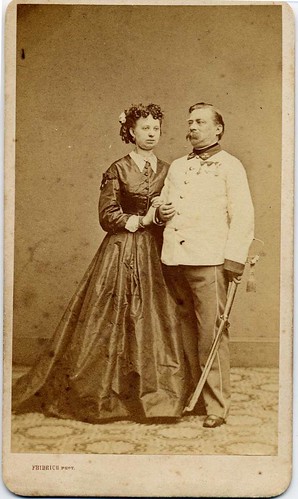When it comes to difficult Scripture passages, whether it is verses about the rod or about submission or anything else, one of the hardest things to do is to set aside our own cultural baggage and preconceived notions about what the text really means. I suspect that God likes to challenge us. To play hide and seek, in a way, so that we will look for Him more earnestly.
I believe that Scripture is holy, and that twisting it to make it more palatable to our own way of thinking is incredibly dangerous. I have seen first hand the terrible damage it does to families and societies when it is warped and misused by those who want to justify their own sinful nature. And that is especially true when it comes to the issue of Biblical submission.
Parts I, II, III and IV of this series looked at the issue of wifely submission in passages on Creation, the Fall, the Curse and the Gospels. Over and over we saw that God's design was for unity and mutual submission. Which is probably why people consider Ephesians 5 to be the big guns of the argument for hierarchy within marriage. So let's take a look at it:
The English language has changed, though, and so has Biblical scholarship. We have access to much more material than the KJV translators had. We have a much better understanding of the Biblical languages thanks to that material. Because of that, we are able to get a more accurate picture of what the Bible really said to the first people to read it. And it turns religious patriarchy on its head.
The Source is a treasure trove of information, with extensive notes on the Greek texts and the most accurate translations of them available. Let's break down a few of the key words in this passage:
According to the notes in The Source, hupotasso, the word translated here as "to support", and in many other translations as "to submit", is most often used as "to be attached" and "to support" (p. 338). Even if you use the mistranslation of "to submit", the verse "Wives, submit yourselves to your husbands" does not occur in ANY known Greek text! This is a case of the early translators reading their own ideas of patriarchy into the text. The idea of support is not only more consistent with Greek usage, it is also much more consistent with the rest of the Bible.
Also, the Bible *does* clearly state is that it is to be mutual. Look back at the beginning: the instruction to both husbands and wives is to support (or if you insist, submit) to one another. In other words, the husband is also called to support/submit to his wife!
It then goes on to beautifully illustrate the mutuality of the relationship--we are not independent of each other. Man is the source of woman (taken from his body). The word used for head in this passage does NOT imply authority in Greek, just a physical head. Much like the head of a river is the source of a river, not authority over it.
The verses about the husband loving the wife once again speak of the importance of echad--unity in the relationship. But an incredibly important part of the last verse that is that subjunctive form in the Greek that is sadly omitted from some English translations: the husband is to love his wife just as he loves himself so that the wife is able to respect her husband.
I fully believe that wives are to submit to their husbands, in the sense of unselfishly supporting and caring for them. I also fully believe that husbands are to submit to their wives and unselfishly support and care for them. That is who we are supposed to be as believers. Look at Phillipians 2. How much more should that apply to the intimacy of a husband and wife!
Ephesians 5 is a beautiful passage about family relationships and what it means to love and support one another as we love God. It is not about hierarchy of men over women, or even husbands over wives. There are other Biblical passages to examine, too, but so far the trend is pretty clear. God's Word doesn't change: the picture from the very beginning is of oneness, not separateness. Of both partners supporting and submitting to each other, not of one ruling the other.
Image credit: josefnovak33
I believe that Scripture is holy, and that twisting it to make it more palatable to our own way of thinking is incredibly dangerous. I have seen first hand the terrible damage it does to families and societies when it is warped and misused by those who want to justify their own sinful nature. And that is especially true when it comes to the issue of Biblical submission.
Parts I, II, III and IV of this series looked at the issue of wifely submission in passages on Creation, the Fall, the Curse and the Gospels. Over and over we saw that God's design was for unity and mutual submission. Which is probably why people consider Ephesians 5 to be the big guns of the argument for hierarchy within marriage. So let's take a look at it:
"Be filled with the Spirit, while you are supporting one another out of respect for the Anointed One, wives with your own husbands as to the Lord. The man is the source of the woman just as the Anointed One is the source of the assembly. He himself is the protector of the body. Just as the assembly is a support for the Anointed One, so let the wives be a support for their husbands in everything.Wow! That clears up just about everything right there! But before going back into it, let's talk about the, er, source. That ain't the KJV. We all know that if John the Baptist used the King James Version, then it's good enough for us, right? Except that he didn't, and neither did Paul or any of the other Biblical authors. God has not changed since the Bible was written. His Word is forever. His character and His design for relationships have not changed.
Husbands, love your wives, just as the Anointed One loved the assembly. He sacrifices himself to make the assembly sacred and to cleanse it with baptism by the spoken word. He did this so he would have a a sacred and unblemished assembly, an assembly held in high honor, without stains or wrinkles or any flaws. Husbands are obliged to love their own wives as their own bodies. He who loves his own wife loves himself. No one hates his own body, but provides for and cares for it, just as surely as the Lord provides for and cares for the assembly, because we are the members of his body. The Scriptures say, "For this reason a man will leave his father and mother and be joined to his wife and the two will be a single body." This is an important hidden secret truth. But I am referring to the Anointed One and the assembly. So to get back to the subject - each one of you is to love his own wife just as he loves himself, so that the wife is able to respect her husband." ~ Ephesians 5:21-33 The Source
The English language has changed, though, and so has Biblical scholarship. We have access to much more material than the KJV translators had. We have a much better understanding of the Biblical languages thanks to that material. Because of that, we are able to get a more accurate picture of what the Bible really said to the first people to read it. And it turns religious patriarchy on its head.
The Source is a treasure trove of information, with extensive notes on the Greek texts and the most accurate translations of them available. Let's break down a few of the key words in this passage:
According to the notes in The Source, hupotasso, the word translated here as "to support", and in many other translations as "to submit", is most often used as "to be attached" and "to support" (p. 338). Even if you use the mistranslation of "to submit", the verse "Wives, submit yourselves to your husbands" does not occur in ANY known Greek text! This is a case of the early translators reading their own ideas of patriarchy into the text. The idea of support is not only more consistent with Greek usage, it is also much more consistent with the rest of the Bible.
Also, the Bible *does* clearly state is that it is to be mutual. Look back at the beginning: the instruction to both husbands and wives is to support (or if you insist, submit) to one another. In other words, the husband is also called to support/submit to his wife!
It then goes on to beautifully illustrate the mutuality of the relationship--we are not independent of each other. Man is the source of woman (taken from his body). The word used for head in this passage does NOT imply authority in Greek, just a physical head. Much like the head of a river is the source of a river, not authority over it.
The verses about the husband loving the wife once again speak of the importance of echad--unity in the relationship. But an incredibly important part of the last verse that is that subjunctive form in the Greek that is sadly omitted from some English translations: the husband is to love his wife just as he loves himself so that the wife is able to respect her husband.
I fully believe that wives are to submit to their husbands, in the sense of unselfishly supporting and caring for them. I also fully believe that husbands are to submit to their wives and unselfishly support and care for them. That is who we are supposed to be as believers. Look at Phillipians 2. How much more should that apply to the intimacy of a husband and wife!
Ephesians 5 is a beautiful passage about family relationships and what it means to love and support one another as we love God. It is not about hierarchy of men over women, or even husbands over wives. There are other Biblical passages to examine, too, but so far the trend is pretty clear. God's Word doesn't change: the picture from the very beginning is of oneness, not separateness. Of both partners supporting and submitting to each other, not of one ruling the other.
*************************************
For another look at Ephesians 5 from the standpoint of mutual submission and Hebraic thought, please check out this link: http://theluttonfamily.com/mamadomain/ephesians-5-and-what-it-says-about-submission.html
Image credit: josefnovak33
*********
Read the whole series :)







